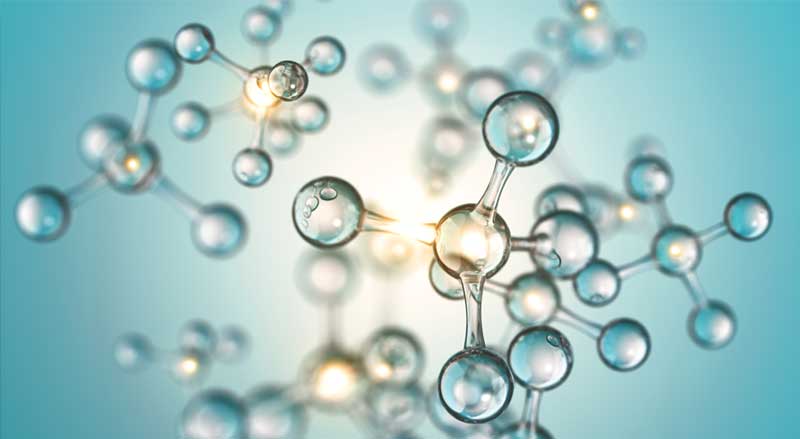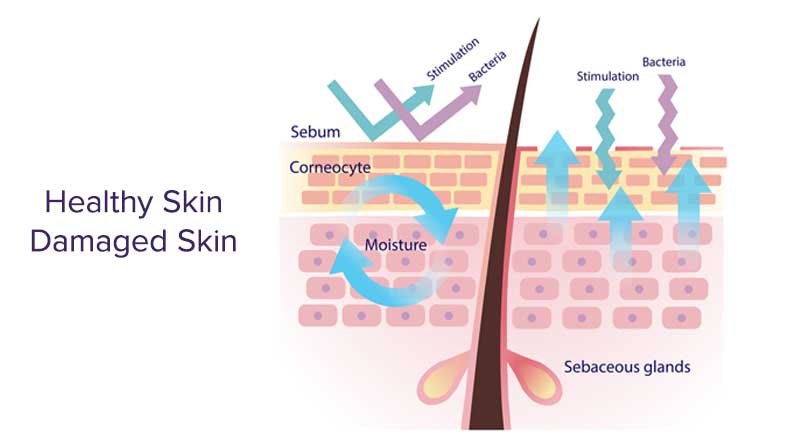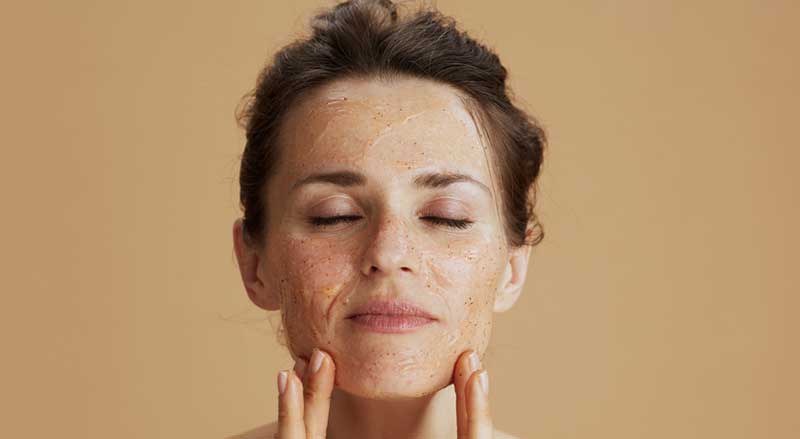Understanding the Science Behind Skincare Ingredients
Posted on |

A glowing complexion will make you feel more attractive and confident. It also reflects your overall health and well-being. Today, with so many skincare products on the market, it’s sometimes hard to know which will truly help your skin look and perform its best.
Selecting the most helpful skincare products for your skin type starts with understanding the science behind skincare ingredients.
How Skincare Products Work in the Skin
You apply skincare products directly to the skin and they work through absorption. The more a product can be absorbed, the better it will work for you.
These factors affect product absorption.
Skin pH
The pH of your skin influences its ability to absorb skincare products. Keeping your skin in its natural optimal pH range of being slightly acidic, about 5.5, is key to both skin health and product absorption.
Skin’s Lipid Barrier

The outermost layer of the skin is the skin barrier. It’s key to keeping skin healthy. The barrier consists of fats, ceramides, and cholesterol. A healthy skin barrier will provide the best product absorption as well as:
- Prevent water loss—keeping skin plump and young-looking
- Shields the skin from outside irritants and pollutants
Products that are too harsh for your skin type can cause the skin barrier to become dry, sensitive, and more vulnerable to other skin problems.
Groups of Skincare Products
Following are some of the most popular skincare ingredients grouped by:
- Moisturizers/Skin Smoothers
- Anti-Aging Ingredients
- Exfoliators
Here are some beauty habits for healthy glowing skin and expert advice about the foundations of a healthy skincare routine.
Moisturizers/Skin Smoothers

Moisturizers help your skin attract and hold moisture and help repair the skin barrier.
It’s important to use a product that’s right for your skin type; you don’t want to clog your pores inadvertently or make your skin appear greasy.
Ceramides
Ceramides are naturally occurring fatty acids. They help skin cells hold together and create a waterproof seal for a healthy skin barrier—greatly improving hydration.
Ceramides in moisturizers are helpful for everyone, but are particularly useful for mature, dry, irritated, itchy, or eczema-prone skin.
Hyaluronic Acid (HA)
Hyaluronic acid is a naturally produced humectant that’s found in our skin, connective tissue and joints. A humectant draws moisture into the skin.
Hyaluronic acid is a powerful deep hydrating agent—it attracts up to 1,000 times its weight in water. People enjoy the way it smooths, hydrates, and plumps dry and wrinkled skin. Many anti-aging products also contain HA.
It’s most helpful to use with mature or dry skin although it can be useful for people with all skin types—including sensitive skin.
Niacinamide (Vitamin B3)
This anti-inflammatory ingredient delivers many skin benefits for all skin types.
Since it regulates sebum production, it’s extremely useful for oily or acne-prone skin.
Its anti-inflammatory properties also make it a great product for people with sensitive skin since it soothes irritated skin.
Niacinamide also:
- Helps even out skin tone
- Strengthens the skin barrier
- Minimizes the appearance of pores
- Helps retain moisture
- Repairs skin with eczema or rosacea
Anti-Aging Products

Anti-aging products help skin appear brighter and more youthful looking. They decrease the appearance of fine lines and wrinkles, and often help boost collagen production and promote cellular turnover.
Some anti-aging products can irritate at first, so it’s best to start slow and not use with other exfoliants or combine with other specific ingredients.
Before first use, carefully read product directions and warnings.
Retinol
Retinol is a form of Vitamin A and is in the class of retinoids. It improves cell turnover and collagen production, and you can find it in skin creams and serums.
Retinol improves skin with acne, aging issues, or uneven tone. People experience smoother skin texture and less hyperpigmentation; they enjoy a more youthful complexion after regular use.
Retinol is suitable for people with all skin types. However, it’s most popular with people with mature skin or who want to prevent the signs of aging.
When first used, retinol can cause skin irritation, including dryness, redness and peeling. Work it in to your skincare routine slowly. Avoid chemic exfoliants or acids. Apply SPF every day.
Here’s more about the power of retinol and how to incorporate it into your skincare routine.
Alpha-hydroxy acids (AHAs)
AHAs are water-soluble acids derived from fruits or sugar. They are an anti-aging ingredient that works well on dry skin.
They effectively:
- Exfoliate skin
- Improve skin texture
- Smooth surface wrinkles and fine lines
- Minimize the appearance of pores
- Cleanse pores and fight acne
- stimulate collagen production
- Improve the absorption of other skincare products
Two popular AHAs are glycolic acid and lactic acid.
Work them in to your skincare routine slowly to prevent irritation, and use an SPF every day. Darker skin tones may experience superficial chemical burns.
Vitamin C
Vitamin C is a powerful antioxidant for the skin that:
- Brightens the skin
- Stimulates collagen production
- Fades dark spots
- Neutralizes free radicals brought on by environmental stressors
- Protects against UV radiation
Use vitamin C in your skincare to create a radiant and more even skin tone.
Vitamin C is useful for dull, sun-damaged, or hyperpigmented skin.
Vitamin E
Vitamin E is both an anti-inflammatory and antioxidant. It fights against skin discoloration and helps prevent skin damage and aging caused by free radicals. It also keeps acne breakouts at bay.
Vitamin E is appropriate for aging, acne-prone, or hyperpigmented skin.
Exfoliators

Exfoliators are extremely useful for oily or acne-prone skin. They help reduce too much shine, clean out pores, and eliminate dead skin and bacteria from the skin’s surface.
Slowly work exfoliators into your skincare routine and don’t combine their use with certain anti-aging ingredients such as retinol.
Read about caring for sensitive skin.
Glycolic and Lactic Acid
These are powerful AHAs and excellent exfoliating agents. If you’re already using these ingredients in your anti-aging skincare regimen, don’t include them as an additional exfoliant.
Beta-Hydroxy Acids (BHAs)
BHAs are oil-soluble acids that decrease oil gland secretion. They’re extremely helpful for acne control or oily skin.
Salicylic Acid
Salicylic is a BHA. It deeply penetrates pores, dissolving clogs, and fights bacteria. It also helps eliminate and prevent future blackheads and whiteheads.
People with sensitive or extremely dry skin should not use salicylic acid.
Contact us at Vibrance MedSpa for healthy, glowing skin.
